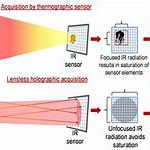Last Updated on 12 months by Francis
Welcome to this discussion about whether EMF can harm you. EMF, or electromagnetic fields, are generated by electronic devices and are present throughout our daily lives. Despite their ubiquitous nature, there is ongoing debate about whether or not EMF exposure can have negative impacts on human health. In this discussion, we will explore the potential dangers of EMF, the evidence for and against those dangers, and what you can do to protect yourself.
Contents
The Basics of EMF
Electromagnetic fields (EMF) are a form of energy that is present all around us. They are produced by electrical devices, including cell phones, computers, and WIFI routers. These fields can be classified into two types, ionizing and non-ionizing. Ionizing EMF, such as X-rays and gamma rays, have enough energy to break molecular bonds and cause damage to cells. Non-ionizing EMF, on the other hand, have lower energy levels and are generally considered safe.
The Concerns
Despite this, there is still widespread concern that non-ionizing EMF can be harmful to humans. Many studies have linked EMF to a wide range of health problems, including cancer, infertility, and neurological disorders. However, the evidence is inconclusive, and the scientific community remains divided on the issue.
The Health Risks of EMF
Cancer
One of the main concerns regarding EMF is its potential link to cancer. Some studies have suggested that long-term exposure to EMF can increase the risk of certain types of cancer, such as leukemia and brain tumors. However, many other studies have found no such link. The World Health Organization has classified EMF as a possible carcinogen, but this classification is based on limited evidence and is not definitive.
Infertility
Another concern is that EMF can affect fertility. Some studies have linked EMF exposure to a decrease in sperm count and motility, as well as an increase in DNA damage. However, other studies have found no such link. The evidence is inconclusive, and more research is needed to determine whether EMF exposure can affect fertility.
Neurological Disorders
EMF exposure has also been linked to an increased risk of neurological disorders, such as Alzheimer’s disease and Parkinson’s disease. Some studies have found that long-term exposure to EMF can damage the blood-brain barrier, which can lead to the accumulation of toxins in the brain. However, other studies have found no such link, and the evidence is inconclusive.
The Precautions You Can Take
Reduce Your Exposure
While the evidence on EMF is inconclusive, it is always a good idea to take precautions to reduce your exposure. You can do this by limiting your use of electronic devices, using a hands-free headset when talking on your cell phone, and keeping your cell phone away from your body when you’re not using it. You can also use EMF shielding devices, which are designed to reduce the amount of EMF that reaches your body.
Practice Good Sleep Hygiene
EMF exposure can also affect your sleep quality. To reduce your exposure at night, turn off electronic devices before bed, and keep them away from your sleeping area. You can also invest in EMF shielding bedding, which is designed to reduce your exposure while you sleep.
Eat a Healthy Diet
Finally, eating a healthy diet can help protect your body from the potential harms of EMF. Include plenty of fruits and vegetables in your diet, as they contain antioxidants that can help repair cellular damage. Avoid processed foods and sugary drinks, as they can increase inflammation in the body.
FAQs – Can EMF Harm You?
What are EMFs?
EMF stands for electromagnetic fields, which are created by electrically charged objects. They include electromagnetic radiation, such as radio waves, microwaves, X-rays, and gamma rays.
How can EMFs harm us?
There is some evidence that exposure to high levels of EMF radiation, such as those emitted by power lines, cell phones, and wireless devices, may increase the risk of cancer, infertility, neurological disorders, and other health issues. However, the science on this subject is still evolving, and more research is needed to confirm these findings.
How can I reduce my exposure to EMFs?
One way to reduce your exposure to EMFs is to limit your use of cell phones and wireless devices, and to use wired connections whenever possible. You can also avoid living near power lines, and minimize your exposure to other sources of EMF radiation, such as smart meters and Wi-Fi routers. Some people also use EMF shielding products, such as special clothing or jewelry, to protect themselves from EMF radiation.
Can EMFs harm children?
Children are generally more vulnerable to the effects of EMFs than adults, due to their developing bodies and brains. However, the extent of this vulnerability is not fully understood, and more research is needed to determine the long-term effects of EMF exposure on children.
Are there any regulations on EMF exposure?
Different countries have different regulations on EMF exposure, but most follow guidelines set by the International Commission on Non-Ionizing Radiation Protection (ICNIRP). These guidelines are based on the latest scientific research, and are designed to protect human health from the harmful effects of EMF radiation. However, some experts believe that these guidelines are too lenient, and that more needs to be done to protect the public from EMF radiation.

.jpg)




